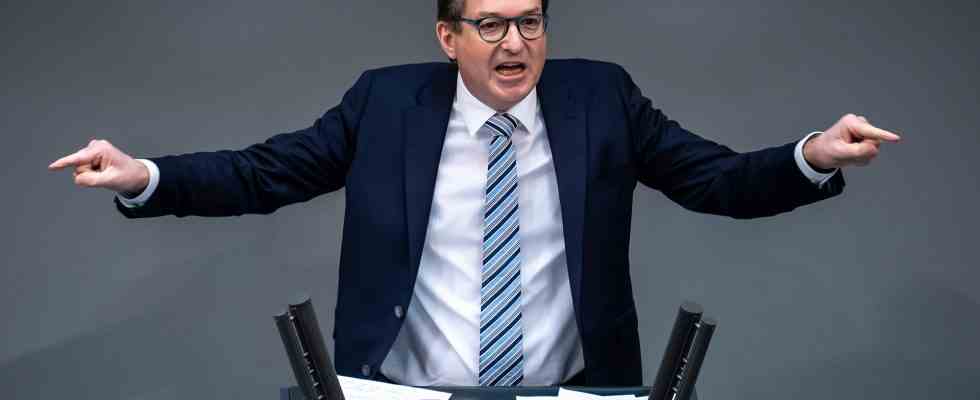Status: 03/17/2023 4:43 p.m
Parliament President Bas had to ask for silence several times: the debate in the Bundestag on the electoral law reform was extremely heated. An alliance was revealed between the CSU and the Left Party – the AfD smiled.
If the left claps demonstratively, long and persistently for the CSU, then something must really have happened. The debate about the new electoral law had ensured exactly that in the morning.
Left and CSU felt equally betrayed by the traffic light government. The head of the CSU state group, Alexander Dobrindt, heard it like this: “They want to push the left out of parliament – and with obvious joy question the CSU’s right to exist.”
Basic mandate clause is dropped
The traffic light coalition had changed the reform again in the last few meters. The basic mandate clause is dropped. This means that if a party does not get five percent of the votes nationwide, it will not get into the Bundestag. Without exception. So far, the exception has been when the party was less than five percent, but achieved at least three direct mandates.
That’s the only reason why the left sits in the current Bundestag. And the CSU got just 5.2 percent nationwide in the last election. If it were below five percent, not a single member of parliament would move into the Bundestag, even if he or she had won a direct mandate in the constituency.
FDP and Greens share against the CSU
Yes, that’s the way it is, said the parliamentary group leader of the Greens, Britta Haßelmann: “This CSU does not stand in 15 federal states. It cannot be that the CSU, as a regional party, dictates to the German Bundestag what the electoral law looks like.”
The speakers of the FDP also shot at the CSU. The deputy head of the Liberal parliamentary group, Konstantin Kuhle, emphasized that every attempt to reform the electoral law failed in the end because of the CSU. “The CSU messed up the right to vote for Norbert Lammert and Wolfgang Schäuble. It won’t mess up the traffic light electoral reform,” he said, referring to the efforts of the then President of the Bundestag, both of whom are CDU members.
SPD rejects allegations by the opposition
The SPD also counted how often they had approached the Union – in the end without success. The accusation that the traffic light wanted to eliminate two opposition parties was not accepted by Leni Breymaier either.
Instead, she had good advice for the left-wing parliamentarians. “Well, I would like a little more self-confidence from the left. Cheer up, then you’ll get over five percent,” said Breymaier.
Scold, scream, point fingers – the AfD watched this debate with amusement. After another loud speech by the SPD, Stefan Brandner remarked: “I can say that you yelled around here from the very first moment. I once learned that whoever shouts, lies.”
“See you in Karlsruhe!”
Agitated, loud, emotional – Parliament President Bärbel Bas had to ask for calm several times. Because even when Jan Korte, the parliamentary manager of the left-wing faction, accused the traffic light coalition of “bigoted arrogance”, it got loud again.
Korte accused the government of “eliminating two opposition parties here”. But if the governing parties in Hungary and Poland were to carve up their electoral rights, the traffic light coalition partners would “tweet their fingers sore” and hold a vigil. “See you in Karlsruhe!” Korte called out to the government bank.
There was demonstrative clapping from the Union for the Left. At the forefront was CSU regional group leader Dobrindt, who announced that he would go before the Federal Constitutional Court immediately after the vote.
Loud and highly emotional – electoral law reform in the Bundestag
Anita Fünffinger, ARD Berlin, March 17, 2023 3:31 p.m

